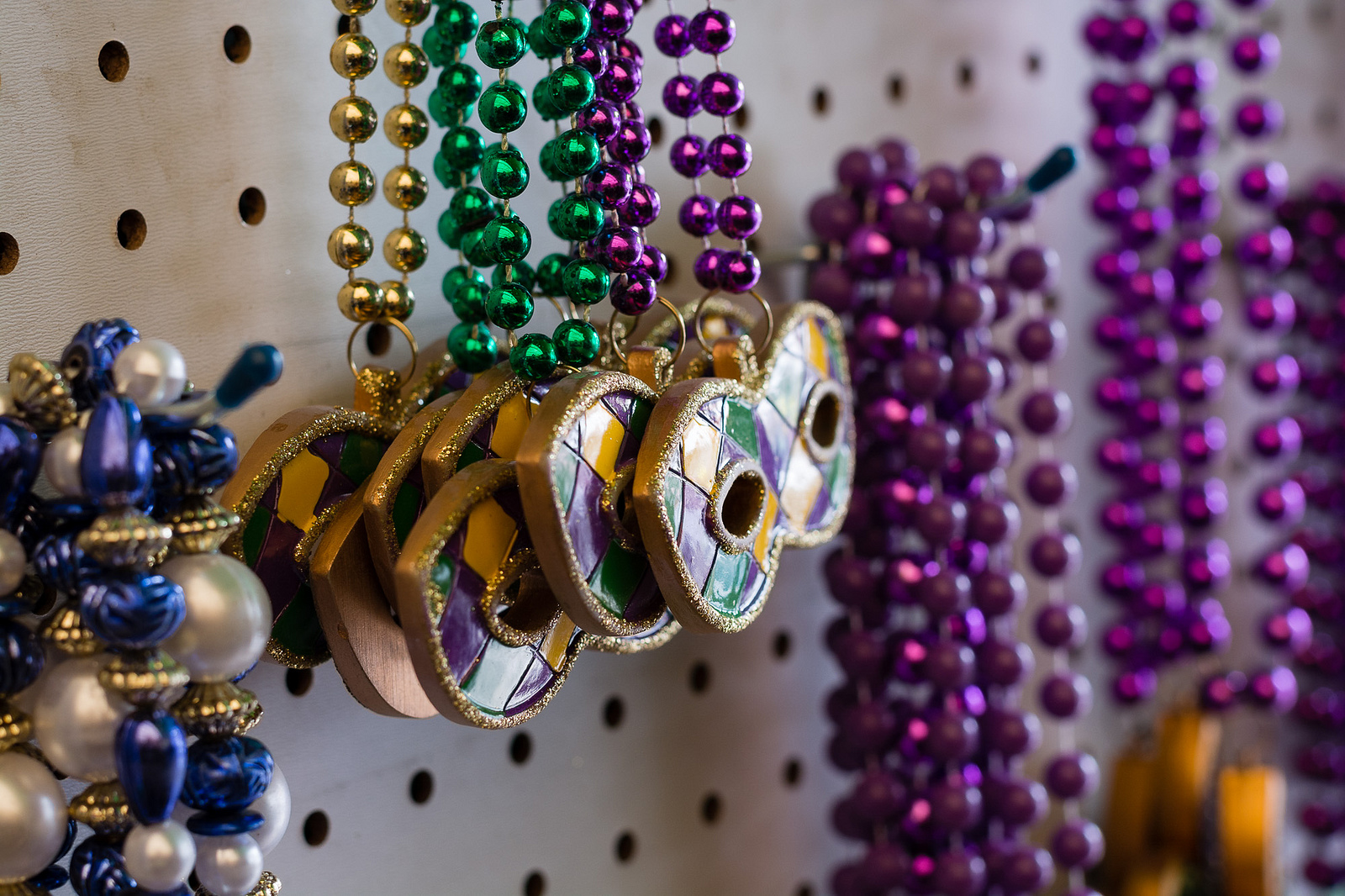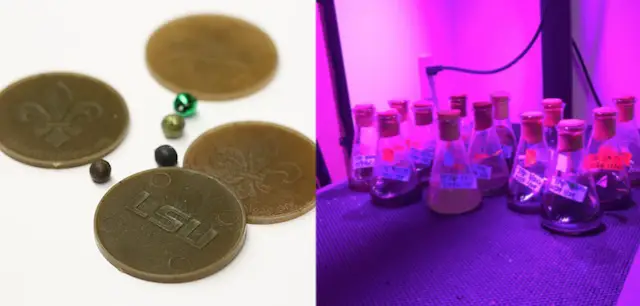Biodegradable Mardi Gras Beads Could Help Keep the Environment Trash-Free
Tags: News

By Mandy Froelich / Truth Theory
Thanks to Professor Naohiro Kato, a biologist from Louisiana State University (LSU), you can now have fun in New Orleans and preserve the environment.
Every year, the New Orleans holiday generates up to 960 tons of trash. One of the main contributors to the overwhelming amount of rubbish? You guessed it: Mardi Gras beads.
They might be fun to wear, but the festive necklaces regularly end up in the city’s water supply. To remedy this issue, Professor Kato developed a process to grow a species of microscopic algae (called diatoms) which can be harvested, then turned into a powder that can form throw beads and doubloons.
 Photos by Paige Jarreau / Alison Satake – Louisiana State University
Photos by Paige Jarreau / Alison Satake – Louisiana State University
Once the fun is over, the necklaces can be planted into soil. Within one to two years, they will fully biodegrade. “I believe we can change and do better. We have great resources to make our Mardi Gras celebrations more sustainable and to protect our environment and health,” said Kato.
According to GoodNewsNetwork, Kato was inspired to begin his research when a student at LSU accidentally discovered the basic ingredient which he has since refined to produce the eco-friendly Mardi Gras beads. “My student was supposed to come into the lab three nights in a row to move our test tube samples of algae from the centrifuge to the freezer, but one night he forgot,” Kato explained.
An ‘Aha!’ moment occurred the next day when Kato found a large glob of algae accumulating oils on the bottom of the centrifuge. His immediate thought was to use the substance to create biodegradable Mardi Gras beads. He also considered how the algae might make some beads appear more “green” and, thus, more appealing.
Kato started by growing a large quantity of microscopic algae, or microalgae, in a six-foot kiddie pool. Louisiana’s outdoor climate, water, and nutrients produced an ideal environment for microalgae to grow. However, he quickly ran into one major issue: the high cost of manufacturing the algae.
After some brainstorming, the Professor overcame this issue by selling the micro-algae to the nutraceuticals industry. He realized he could still make the biodegradable Mardi Gras beads with the leftover biomass. Reportedly, the eco-friendly beads cost up to three times as much as plastic beads to produce.
Kato’s spinoff company, Microalgae LLC, is based in Baton Rouge. According to the press, he has already been approached by some angel investors. The inventor is also collaborating with other university professors to develop a variation of the bead that contains wood fiber.
It is not yet known when, or if, the eco-friendly Mardi Gras beads will hit the market. At present, Professor Kato is awaiting a contract to begin production of the biodegradable Mardi Gras beads.
IMAGE CREDIT: Flickr
Leave Comment: